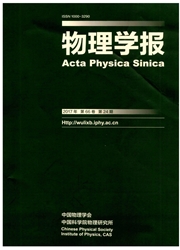

 中文摘要:
中文摘要:
利用等效质心方法描写单摆运动,经典力学通过牛顿方程得到摆球在空间做周期振动,而量子力学却给出完全不同的结论:摆球做无"周期"的随机运动.本文分析了量子力学等效质心模型成立的条件,在此基础上计算了经典单摆过渡至量子单摆的实验条件,表明在目前的实验水平上观察宏观摆球(微米量级)的空间量子跃迁行为是简便易行的.
 英文摘要:
英文摘要:
Dealing with the motion of single pendulum, classical mechanics shows, by the effective center of mass method, that the pendulum ball performs periodical spatial movement. However, using the same method, quantum mechanics presents a totally different answer: the pendulum ball moves randomly in space without a definite period. We provide the criteria conditions for the two different predictions, and propose the experimental conditions for the ball to obey quantum mechanics. Our results show that it is quite easy with current experimental apparatus to observe the spatial quantum transition of a macroscopic objects of the micrometer-seale.
 同期刊论文项目
同期刊论文项目
 同项目期刊论文
同项目期刊论文
 期刊信息
期刊信息
